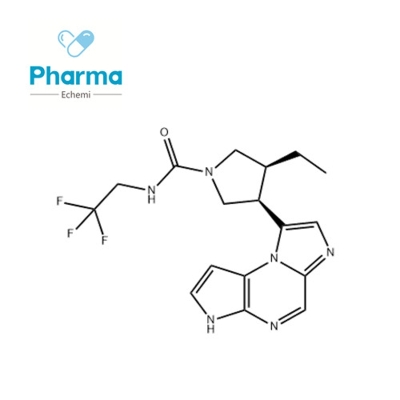-
Categories
-
Pharmaceutical Intermediates
-
Active Pharmaceutical Ingredients
-
Food Additives
- Industrial Coatings
- Agrochemicals
- Dyes and Pigments
- Surfactant
- Flavors and Fragrances
- Chemical Reagents
- Catalyst and Auxiliary
- Natural Products
- Inorganic Chemistry
-
Organic Chemistry
-
Biochemical Engineering
- Analytical Chemistry
-
Cosmetic Ingredient
- Water Treatment Chemical
-
Pharmaceutical Intermediates
Promotion
ECHEMI Mall
Wholesale
Weekly Price
Exhibition
News
-
Trade Service
February 16, 2021 // -- Pfizer (Pfizer) recently announced that the U.S. Food and Drug Administration (FDA) has approved a Supplemental Biologics License Application (SBLA) for Panzyga (Intravenous Human Immunoglobulin, 10% Liquid Preparation) for the treatment of adult patients with chronic inflammatory demyelinative multiple neuropathy (CIDP).
CIDP is a rare autoimmune-mediated multiple neuropathy, and intravenous administration immunoglobulin (IVIg) is the most common first-line treatment in CIDP patients.
it's worth noting that Panzyga is the only IVIg with two FDA-approved CIDP maintenance administration programs that will help meet the clinical needs of patients.
Panzyga can also be given at an infusion rate of 12 mg/kg/min.
Panzyga is a 10% human normal immunoglobulin solution administered intravenously.
U.S., Panzyga was approved in 2018: (1) for patients ≥2 years of age, for primary immunodeficiency (PI) ;(2) for adult patients, and for chronic immunocompytic plateroid reduction (cITP).
Pfizer has entered into a licensing agreement with Octapharma AG Pharmaceuticals under which Pfizer is granted the right to sell and commercialize Panzyga in the United States.
Otapharma AG reserves exclusive rights to commercialize the product in global markets outside the United States.
Lukin, global president of Pfizer's hospital business unit, said: "Each CIDP patient has a different treatment need and we find that only one approved dose option is not always optimal.
approval of the new adaptation and additional dose options will enable healthcare providers to choose a dose option that is appropriate for the patient, which will help address an unsealed medical need in the patient population.
" CIDP is a rare peripheral neurological disorder characterized by increased symmetry and sensory loss and weakness associated with loss of deep tendon reflexes.
the disease is caused by damage to the nerve myelin.
of CIDP can delay diagnosis by months or even years, leading to severe nerve damage, limitations and delays in response to treatment.
most patients need long-term treatment; if left untreated, nearly a third of CIDP patients will develop wheelchair dependence.
early identification and appropriate treatment are essential to help patients avoid developing severe disabilities.
approval of this new adaptation, based on data from a forward-looking, double-blind, randomized, multi-center Phase 3 study of 142 patients diagnosed with CIDP.
phase 3 study was the first and only IVIg CIDP treatment to evaluate more than one maintenance dose option.
, the efficacy, safety and tolerance of infusions were assessed seven times every three weeks over a six-month period.
end of treatment was the proportion of remissioners compared to baseline in the 1.0 g/kg Panzyga treatment group at 6 months of treatment.
were defined as patients with a correction of 10 points of inflammatory neuropathy and treatment (INCAT) disability score was reduced by at least 1 point.
results showed that at the end of 6 months of treatment, 80% (55/69) patients reached INCAT remission at a dose of 1.0 g/kg, reaching the main end of the study.
support endpoints showed dose-dependent efficacy, including a 2.0 g/kg dose group correction INCAT score showing a 92% mitigation rate.
also showed dose-dependent reactions in the grip strength, inflammatory Rahim Comprehensive Disability Scale (I-RODS) and Medical Research Council (MRC) in the 1.0 g/kg and 2.0 g/kg dose groups.
study, Panzyga was generally well-to-do.
most common adverse reactions in all dose groups were headache (15%), fever (14%), dermatitis (10%) and elevated blood pressure (8%).
during the study period, 11 patients (8 percent) received pre-treatment.
() Origin: U.S. FDA approves PANZYGA® for the Treatment of Adults with Chronic Inflammatory Demyelinating Polyneuropathy (CIDP)







